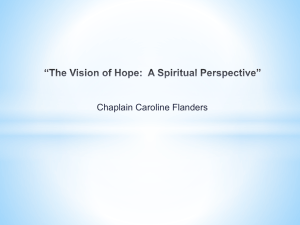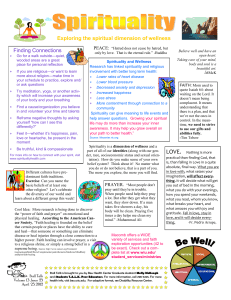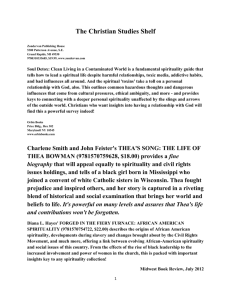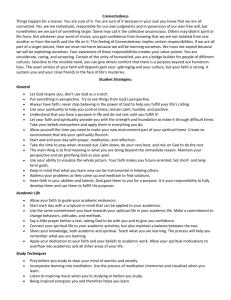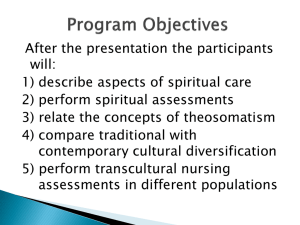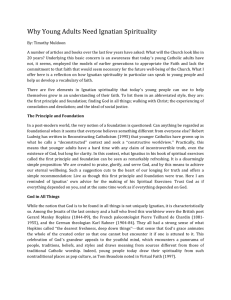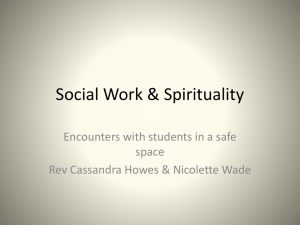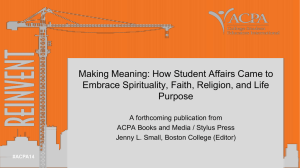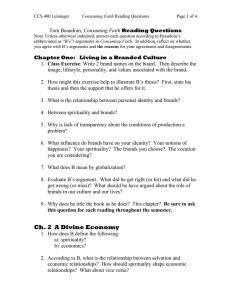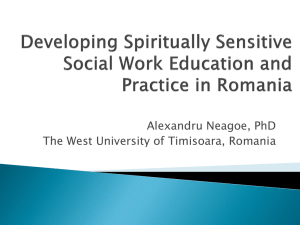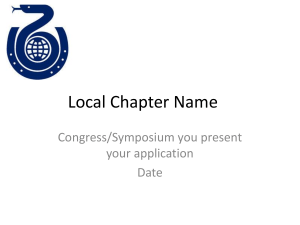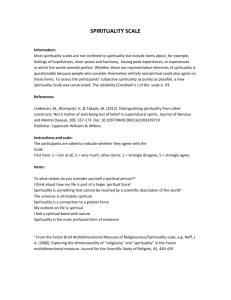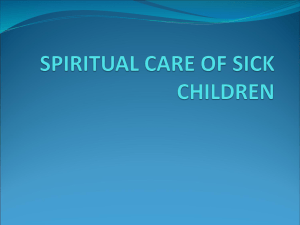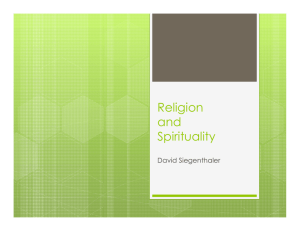Holy cow!: What can Religious Studies teach us about advising?
advertisement
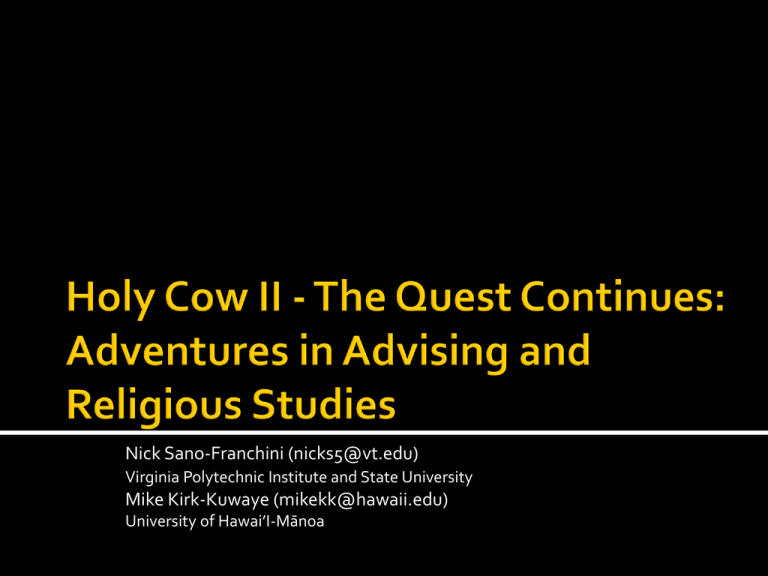
Nick Sano-Franchini (nicks5@vt.edu) Virginia Polytechnic Institute and State University Mike Kirk-Kuwaye (mikekk@hawaii.edu) University of Hawai’I-Mānoa What is “religion?” What is “spirituality?” Where do our definitions come from? “What we have, then, from the earliest years of the republic is a collection of beliefs, symbols, and rituals with respect to sacred things and institutionalized in a collectivity.” “…I would argue that the civil religion at its best is a genuine apprehension of universal and transcendent religious reality as seen in or, one could almost say, as revealed through the experience of the American people.” From “Civil Religion in America” (1967) Robert Bellah “. . . spirituality has to do with the values that we hold most dear, our sense of who we are and where we come from, our beliefs about why we are here— the meaning and purpose that we see in our work and our life— and our sense of connectedness to one another and to the world around us.” Cultivating the Spirit, p. 4 Students are interested in exploring notions of meaning and purpose Growth in certain spiritual areas positively affects academic, personal/emotional, and attitudinal outcomes Meditation, contemplation, and self-reflection (including asking “big questions”) can enhance students’ spiritual development Religious commitment changes little during college, but engagement declines Definitions Clifford Geertz Religion is (1) a system of symbols (2) which acts to establish powerful, pervasive and long-lasting moods and motivations in men (3) by formulating conceptions of a general order of existence and (4) clothing these conceptions with such an aura of factuality that (5) the moods and motivations seem uniquely realistic. from “Religion as a Cultural System” Definitions Paul Tillich Faith is the state of being ultimately concerned: the dynamics of faith are the dynamics of man’s ultimate concern. Dynamics of Faith, p.1. Definitions What we as scholars think of as religions, philosophies, paths . . . etc., could be construed as more or less formalized, more or less coherent systems of valuation that people call upon consciously and unconsciously when making claims regarding what happened, what caused it, and whether or why it matters. From ‘“Religion” in the Humanities and the Humanities in the University’, Plenary address, American Academy of Religion, October 30, 2010. Ann Taves What elements on/in your campus or unit foster questions of meaning and spirituality? How can we utilize those in our advising to be more studentcentered and process oriented?
